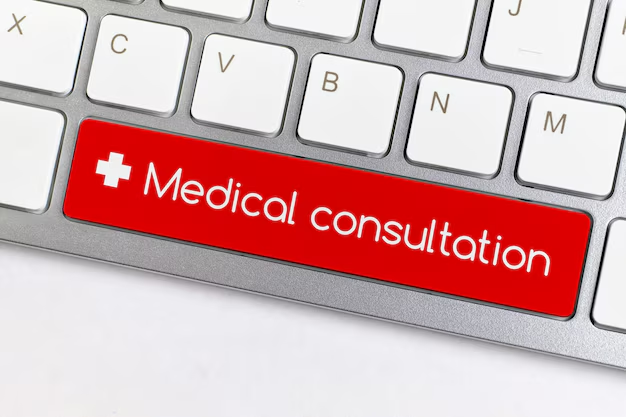Your Guide to What Is The Earliest Age One Can Get Medicare
What You Get:
Free Guide
Free, helpful information about Medicare FAQ and related What Is The Earliest Age One Can Get Medicare topics.
Helpful Information
Get clear and easy-to-understand details about What Is The Earliest Age One Can Get Medicare topics and resources.
Personalized Offers
Answer a few optional questions to receive offers or information related to Medicare FAQ. The survey is optional and not required to access your free guide.
What's the Youngest Age You Can Get Medicare?
Navigating healthcare options can be challenging, especially when it comes to understanding eligibility for programs like Medicare. The question of what the earliest age is at which one can access Medicare is common among those planning for healthcare and retirement. To put it simply, traditional Medicare eligibility begins at age 65. But, there are circumstances where individuals can qualify for Medicare earlier than this age, and knowing these exceptions can help secure healthcare benefits sooner if needed.
Understanding Early Medicare Access
For most, Medicare is associated with the age of 65. However, there are specific conditions in which you might be eligible to enroll in Medicare before reaching this age. Here's how it breaks down:
Disability: If you’ve been receiving Social Security Disability Insurance (SSDI) for 24 months, you automatically qualify for Medicare. This applies to any age, so theoretically, you can be much younger than 65 if you meet this requirement.
End-Stage Renal Disease (ESRD): Individuals diagnosed with ESRD, which requires dialysis or a kidney transplant, may also qualify for Medicare at any age, but certain conditions must be met.
Amyotrophic Lateral Sclerosis (ALS): Often known as Lou Gehrig’s disease, if you've been diagnosed with ALS, you'll automatically qualify for Medicare upon receiving SSDI benefits.
Planning for Healthcare Costs
Healthcare expenses can be a significant part of your financial planning, especially if you're qualifying for Medicare early due to health conditions. It's crucial to plan ahead and understand how these costs fit into your overall financial situation. For those who might not qualify under the above provisions and are approaching 65, there are several options to consider.
Exploring Financial Aid and Assistance Programs
Navigating medical expenses alongside daily living costs can be overwhelming, but fortunately, there are various government aid programs and financial assistance options available:
Medicaid: For low-income individuals, Medicaid can provide significant healthcare assistance. It's available to those who qualify based on income, and can even work alongside Medicare.
The Supplemental Security Income (SSI) Program: This program helps individuals with limited income and resources, offering some cash assistance for basic needs such as housing and food, and can make qualifying for Medicaid, and thus Medicare, easier.
State Health Insurance Assistance Programs (SHIPs): These are free counseling programs that offer guidance on Medicare and Medicaid, helping you make informed decisions based on your personal circumstances.
Prescription Assistance Programs: Many pharmaceutical companies offer assistance to those who struggle to pay for medications, especially if they fall into the "coverage gap" of Medicare Part D.
Looking Beyond Healthcare
Besides healthcare, planning for financial stability is crucial. Whether through credit card solutions, debt relief options, or exploring educational grants, various resources are available:
Credit Counseling Services: These services can help manage debt, providing guidance on budgeting and financial stability.
Debt Relief Programs: Consider these if you're struggling with outstanding debts. They can offer structured plans to help reduce what you owe.
Educational Grants: For those seeking new career paths or further education, many grant options are available, minimizing the need for student loans.
With thoughtful planning and utilization of available resources, you can effectively navigate the complexities of health care expenses while ensuring overall financial health through life's various stages.
Helpful Resources and Programs 🛠️
- Medicare: Eligibility starting at 65 or sooner with specific conditions.
- Medicaid: For low-income individuals needing healthcare support.
- Supplemental Security Income (SSI): Financial aid for those with limited income.
- State Health Insurance Assistance Programs (SHIPs): Free Medicare counseling.
- Prescription Assistance Programs: Aid with medication costs.
- Credit Counseling Services: Support for managing debt and budgeting.
- Debt Relief Programs: Assistance in reducing outstanding debts.
- Educational Grants: Opportunities to fund education with minimal loans.
Each of these options can be a stepping stone to a secure financial future, providing not only support for healthcare expenses but also pathways to sustainable living and career advancement.
What You Get:
Free Medicare FAQ Guide
Free, helpful information about What Is The Earliest Age One Can Get Medicare and related resources.

Helpful Information
Get clear, easy-to-understand details about What Is The Earliest Age One Can Get Medicare topics.

Optional Personalized Offers
Answer a few optional questions to see offers or information related to Medicare FAQ. Participation is not required to get your free guide.


Discover More
- a Medical Provider That Accepts Medicare Assignment Must
- a Medical Provider That Accepts Medicare Assignment Must Quizlet
- a Medicare Patient Received Treatment That Isn't Covered By Medicare
- a Medicare Patient Receives Treatment That Isn't Covered By Medicare
- a Medicare Supplement Basic Benefit Is Quizlet
- a Medicare Supplement Companies
- a Medicare Supplement Policy Is Quizlet
- a Medicare Supplement Policy Must Not Contain Benefits Which
- a Patient Received Treatment In August Medicare
- Am I Eligible For Medicare
